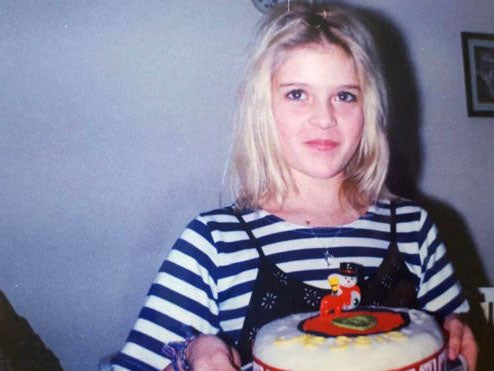Woman who died in prison was left alone in cell after being found with ligatures around her neck, inquest finds
Jury finds 'insufficient observational effort' by prison staff during Ms Whitchurch's final hour in cell

Your support helps us to tell the story
From reproductive rights to climate change to Big Tech, The Independent is on the ground when the story is developing. Whether it's investigating the financials of Elon Musk's pro-Trump PAC or producing our latest documentary, 'The A Word', which shines a light on the American women fighting for reproductive rights, we know how important it is to parse out the facts from the messaging.
At such a critical moment in US history, we need reporters on the ground. Your donation allows us to keep sending journalists to speak to both sides of the story.
The Independent is trusted by Americans across the entire political spectrum. And unlike many other quality news outlets, we choose not to lock Americans out of our reporting and analysis with paywalls. We believe quality journalism should be available to everyone, paid for by those who can afford it.
Your support makes all the difference.“Deeply inadequate” prison procedures contributed to the death of a young woman who was left alone in her cell after being found with ligatures around her neck, an inquest has found.
Jessica Whitchurch died after on 20 May 2016 in HMP Eastwood Park. She was one of 12 self-inflicted deaths in women’s prisons that year – the highest annual death toll on record.
The jury found that there was “insufficient observational” effort by prison officers during the 31-year-old's final hour in her cell.
After finding her in a state of distress with ligatures around her neck, prison staff had placed her on twice hourly observations over the lunchtime period.
Less than two hours after the first incident, she was found unconscious with ligatures around her neck. Her heart had stopped and she died in hospital two days later.
The coroner’s expert told the jury that the last check on Ms Whitchurch when she was alive had been “inadequate” and that she should have been subject to continuous observation until her condition stabilised.
The jury also heard evidence about bullying directed at the 31-year-old over that period, including goading by other prisoners to ligature herself again, which “went unchallenged” by staff.
Ms Whitchurch, from Nailsea near Bristol, was from a close-knit family who described her as “the most caring person we have been lucky enough to know”, a fun and optimistic person who loved life but struggled with her demons.
The jury found that open bullying of Ms Whitchurch by other prisoners – which a mental health worker in the prison described as a “campaign” against her – exacerbated her inherent vulnerability.
She had a history of mental ill health and addiction as well as repeated self-harm and suicidality. But contrary to mandatory national guidance, there was no healthcare involvement in the prison suicide and self-harm (ACCT) procedures.
This, an expert witness told the court, “significantly compromised” the management of Ms Whitchurch's risk to herself.
Following the inquest, Emma Gardiner, Ms Whitchurch's sister said: “After a painful two and a half year wait and seven days of extremely distressing evidence the jury has finally confirmed what we have known all along, that Jess’ care in the hours before her death was inadequate and that her death was avoidable.
“All we can hope now is that lessons can be learnt so that the lives of other vulnerable women can be spared, and no family has to suffer as we have. We would like to thank the jury for their hard work and careful consideration of the evidence.”
Selen Cavcav, caseworker at charity INQUEST said: “A jury member at this inquest asked the pertinent question: ‘Given her presentation, should Jessica have been incarcerated in prison at all?’ This critical conclusion clearly answers that.
“This country criminalises women for their own suffering, imprisoning them in places that cannot possibly end the cycle of harm or keep them safe.
“Jess died in the year which saw the highest number of deaths in women’s prisons on record. Preventable deaths like hers continue, yet the current action from the government is insufficient.
“What is urgently needed is focused work across health, social care and justice departments to dismantle failing women’s prisons and invest in specialist services for women in the community."
Join our commenting forum
Join thought-provoking conversations, follow other Independent readers and see their replies
Comments